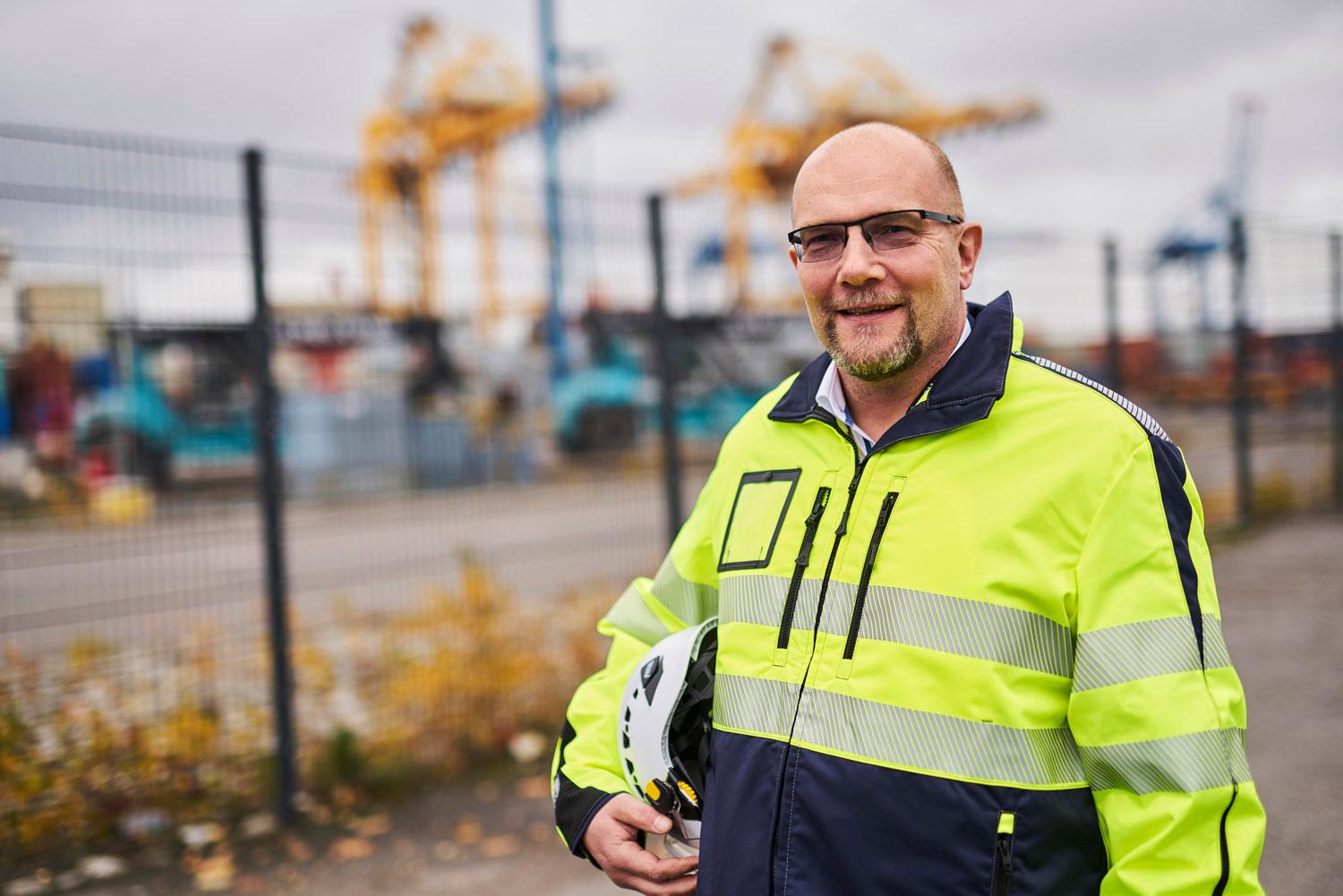Collaboration – key to success

Steveco’s new managing director, Jari Immonen, and board member Jarkko Toroska pilot the company through the changes in the logistics industry.
Jari Immonen, MSc (Engineering), 54, became Steveco’s new managing director in October 2019. He has a long experience in logistics management, having held positions such as managing director or the haulage company Suomen Kaukokiito, operations director for PostNord Logistics in Finland and a management position at the logistics operator DSV.
As the new CEO, Immonen sees the systematic development of Steveco’s strategic competencies and the company’s strengths as his main tasks. “Our proficiency and the customers’ trust are a good foundation for building the future. Everything hinges on improving the customer experience and thereby creating added value. We also need to actively identify the need for new additional services that benefit the customers and for which they are ready to pay.”
The logistics industry is experiencing a profound change internationally. Digitalisation, automation, the increasing size of ships and other global trends challenge the competitiveness of industry actors. Immonen says that Steveco is well placed to use digitalisation as a success factor in its business.
“Process-based operations are the new constant in the industry. This means a controlled way of operating where the quality is always even, and work is automated and done electronically as far as possible. When the entire order-to-delivery chain is handled electronically, the data can be used for monitoring, forward planning and operational assessment. There is less and less paperwork, and soon it will disappear altogether.”
The world is shrinking
From the vantage point of his earlier roles, Immonen has had an excellent view of the revolution in the logistics industry, as well as the new demands for supply chains brought about by personalised deliveries and the increasing popularity of e-commerce. Orders and deliveries through both consumer-oriented online shops and online wholesalers include an increasing variety of products, from electronics and clothing all the way to building supplies.
“In the past, a pallet of shoes was delivered into a retail store, but today, a single pair of shoes is sent directly to the consumer’s doorstep from the other side of the world. The consumer receives outstanding service at a low price, but for the logistics chain, especially the last mile is extremely challenging. Every delivery is different, which makes it difficult to maintain a process-based approach and even quality.”
According to Immonen, the change in consumer trade is having a profound effect on the entire logistics industry, and indirectly, also on export and import ports. “The traditional brick-and-mortar store is losing its position against online commerce. On the other hand, ecology and responsibility are rising trends, making it more important than ever to take them into account in all operations.”
Digitalisation requires high-quality processes
Jari Immonen underscores the importance of processes in exploiting the possibilities offered by digitalisation. “Digitalisation is fundamentally only a way to use or exchange information. To get real benefits from data, its quality must be assured across company interfaces. Data quality and integrity require collaboration throughout the chain, all the way to the end-customer.”
The future will see more and more logistics actors who have implemented their own information chains. On the other hand, feasible business models can also be built on combining a variety of components of existing logistics chains. “This has already been done successfully in the services of some commerce sites, but there are still a lot of both challenges and possibilities in the integration of information flows.”
Immonen doubts that, despite the rapid advancement of digtalisation, the logistics industry will be revolutionised by platform economy applications like Uber or Airbnb. “It is not easy to enter this kind of service market with only a platform. Logistics is also an infrastructure business, and success requires resources you provide by yourself or through partners that can deliver a reliable and even-quality service. According to my experience, at least Finnish customers appreciate it that the service provider exists in the form of a person they can meet face to face if they wish.”
He emphasises the importance of an open, long-term partnership as a success factor in the business. “That is what always delivers the best results. In a genuine, equal partnership, both parties are willing to make a collaboration effort, and when processes are integrated, it can bring cost savings to the customer. In addition, working in a good partnership is pleasant and meaningful to those involved. When you can trust the other party, work also becomes more rewarding.”
New eyes, fresh approach
Jarkko Toroska (49) became a new member of Steveco’s Board of Directors in April 2019. His daily job is Vice President, Head of Business Control Centre at the energy company Fortum, and he has a history in financial management at many international businesses, as well as multinational boards.
As a new Steveco board member, Toroska appreciates the company’s strong market leadership in stevedoring, its proficient staff and strong, long-term customer relations. On the other hand, the fluctuating volumes in the logistics industry are a challenge to the industry, and increasing flexibility is required to prepare for the lows in the economic cycle.
“Taking good care of personnel wellbeing, avoiding work fatigue and ensuring work safety are top priorities in a work environment such as Steveco’s. At the same time, you need to be motivated to learn new things. In some cases, unlearning old operating models may be needed, and I believe I can offer Steveco tools to find just this kind of new ways of working. You need to be proud of past achievements, but at the same time want more to succeed even better in future.”
Toroska says environmental aspects and sustainable development are rising more forcefully to the fore as time goes on. “Steveco can still do much more, for example, for carbon neutrality, and I hope I can contribute to this development through my work in the board. To advance these ideals, much can be done in equipment investment, which is also what customers require from us.”
Like Jari Immonen, Toroska is a strong proponent of pragmatic digitalisation to grow Steveco into an example in the logistics industry of how the service offering can be developed. Toroska says Steveco is well placed to respond to future requirements, but it must also have the courage to rethink operating models. The views of a professional from outside the logistics industry must be a strength in the work of the board to ensure a widespread adoption of the best practices from different businesses. “Sometimes you can and must look at things with new eyes and take a fresh approach. When the world is changing, we must change at an even faster pace.”
SIDEBARS:
About Author

Satama
SATAMA is our customer magazine. it is published twice a year in Finnish.
